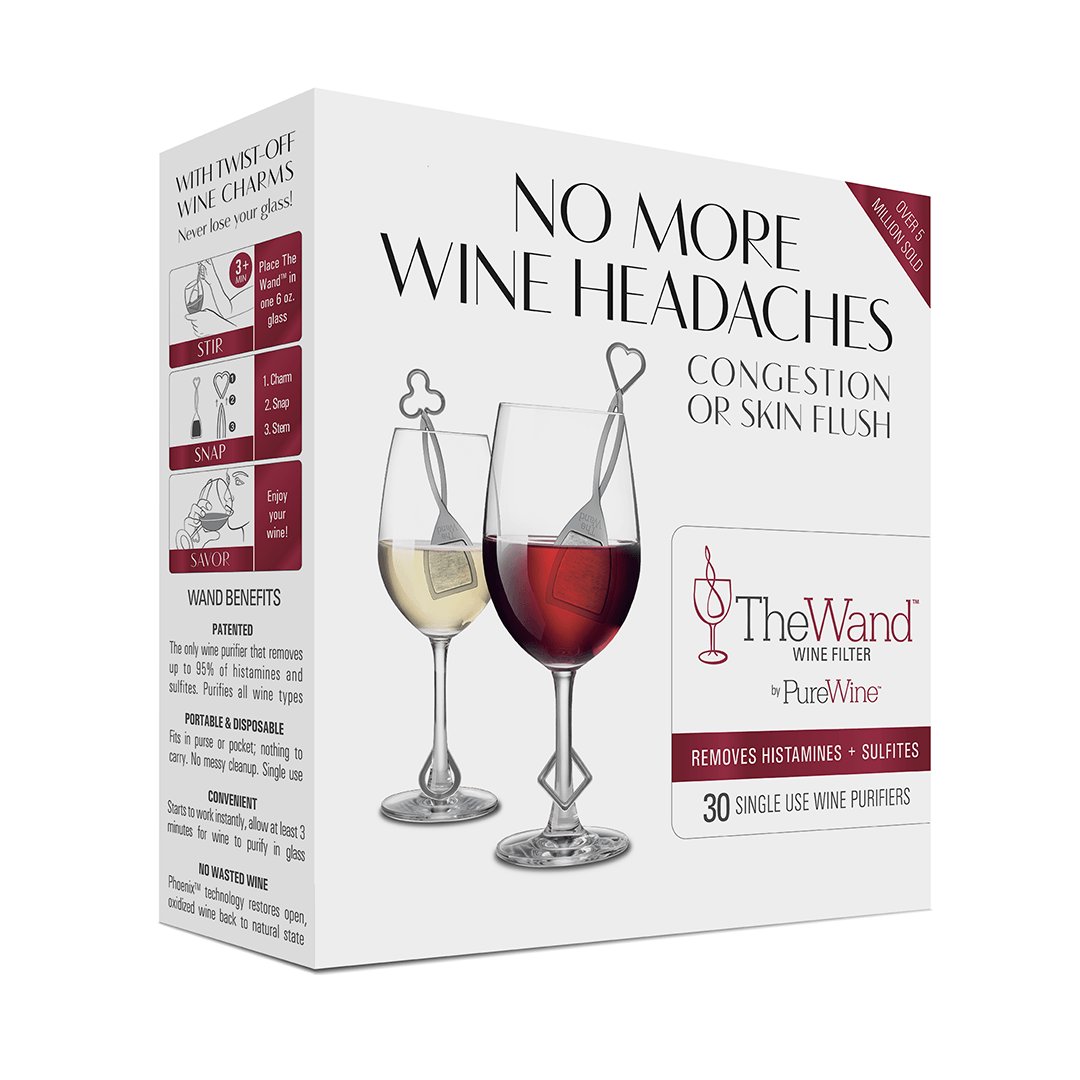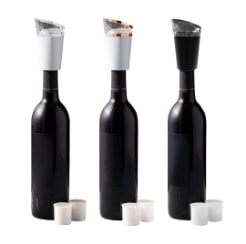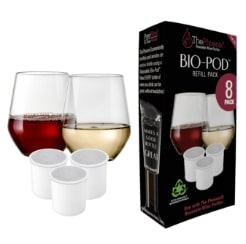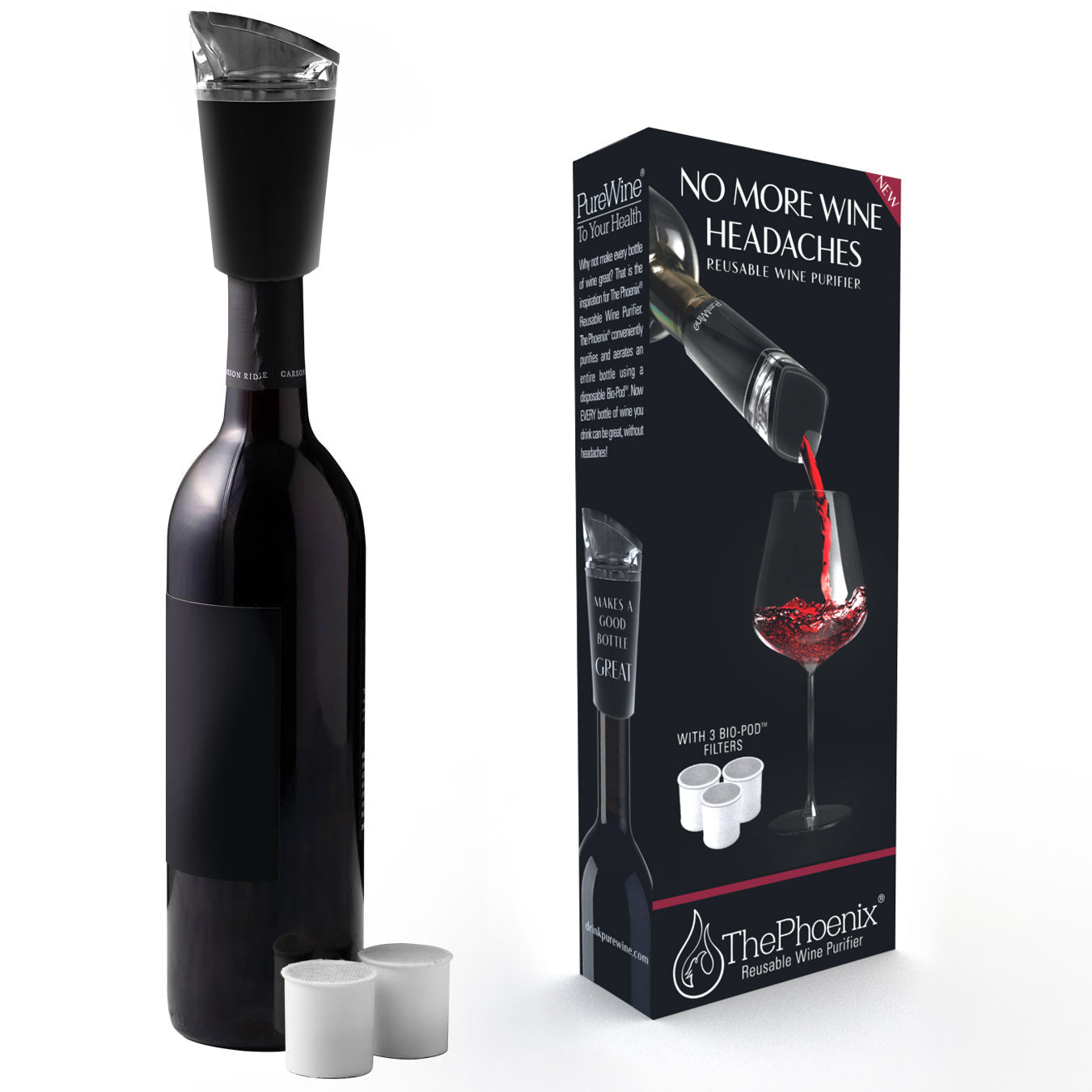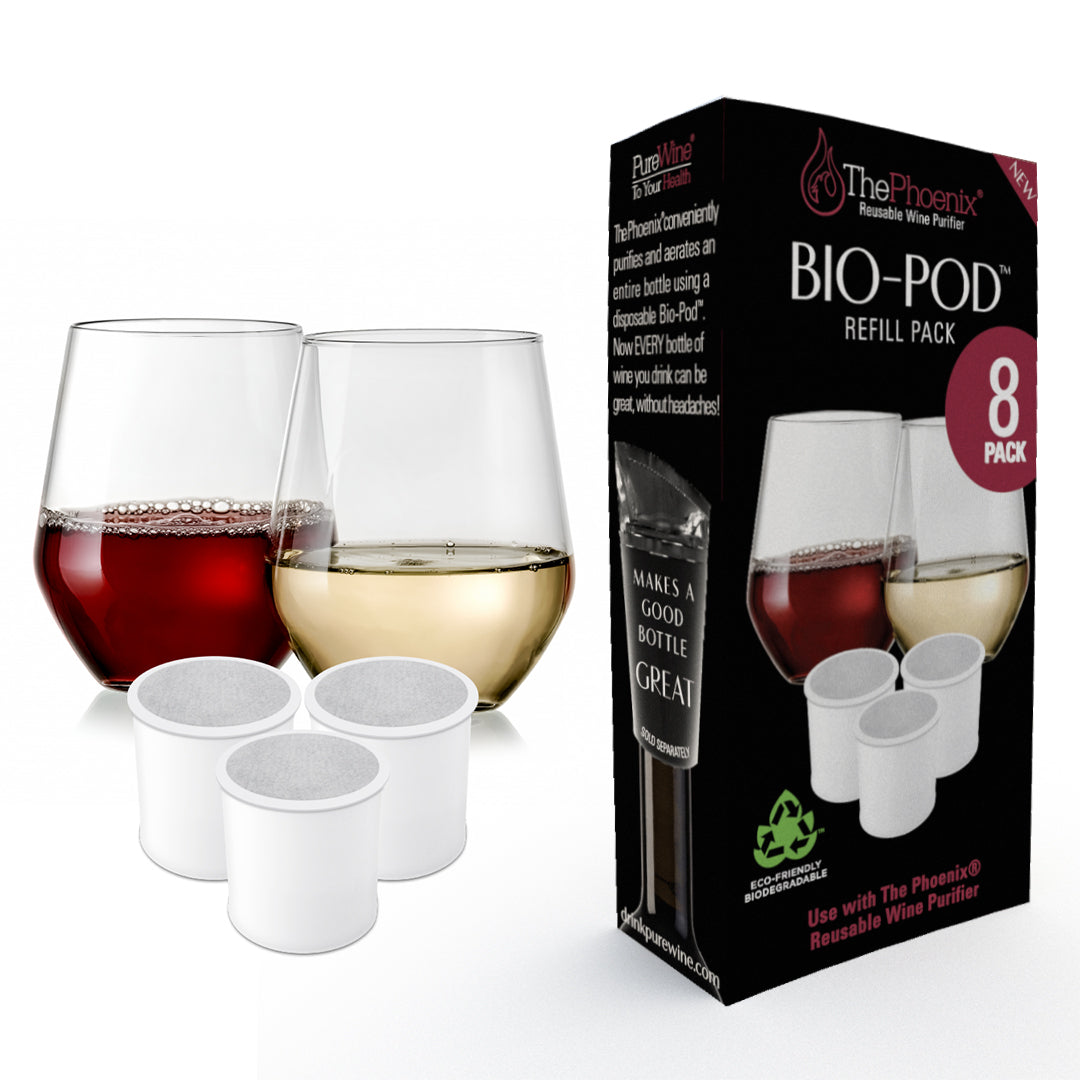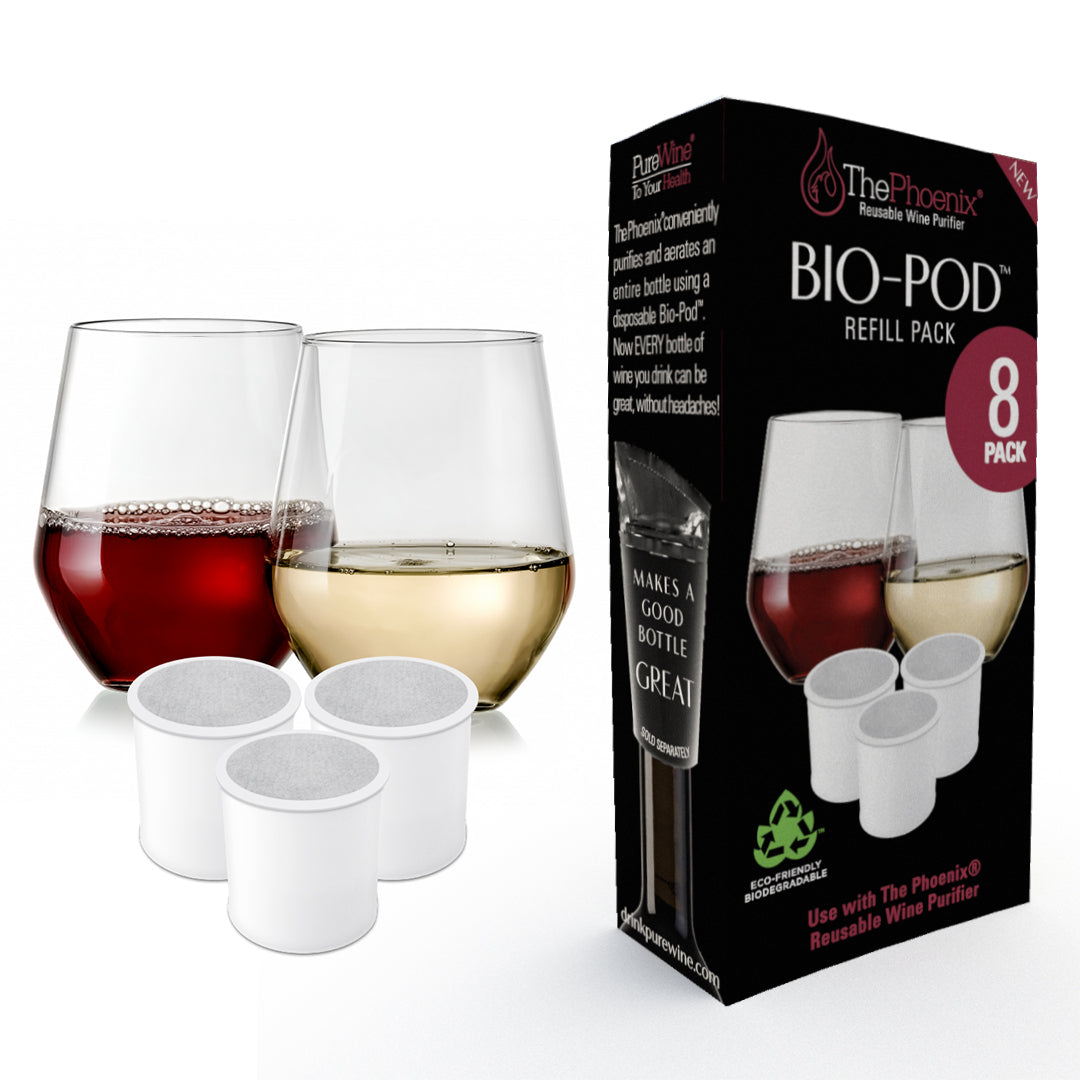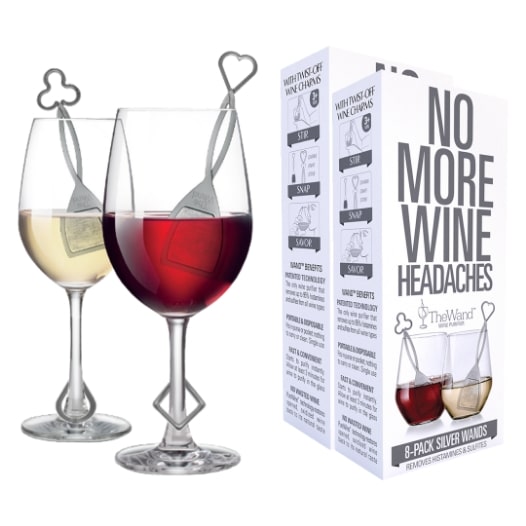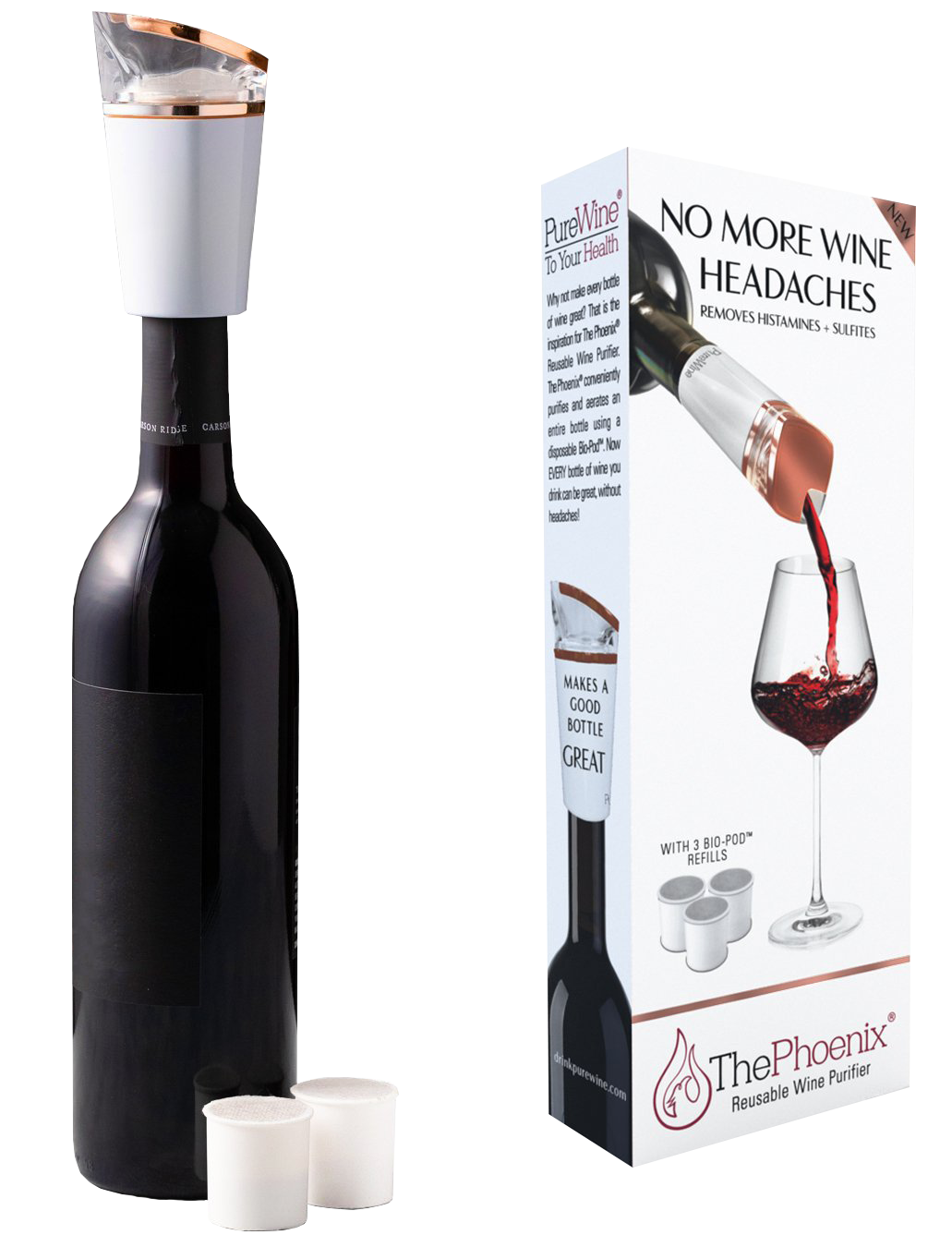What is a Wine Decanter and Why Decant Wine?
In this article we'll talk about the purpose of a wine decanter and why it is important to decant wine. It is all about aeration or "letting wine breathe".
The concept of “letting wine breathe” may sound a bit strange at first to the casual wine drinker. As silly as it sounds, some people may think this means your wine is “congested” or is about to be suffocated? As you’ll see, this age-old process is actually extremely important to maximizing the flavor and aromatic bouquet of a wine before it is consumed. While most people tend to only bring out their decanters for those expensive “special occasion bottles”, you can get similar results from aerating that $10 bottle of Cab you bought at Publix.
Wine Aeration
You see, the goal of aeration is to allow your wine to directly interact with nitrogen and oxygen molecules in the air. As the air interacts with the wine, the air causes the rapid evaporation of the bitter tasting, foul smelling molecules that accumulate in a bottle of wine during storage.
Does Wine Aeration Remove Sulfites?
A little-known fact about aeration is that it also encourages the rapid evaporation of sulfite preservatives. These compounds are some of the most noxious compounds found in nature and can cause bitter taste even at very low concentrations. When these molecules are present, they mask the more subtle tastes and aromas of the wine.
The process of aeration is commonly described as “letting a wine breathe”. This simple process shifts the flavor profile of a wine, so it becomes more mellow, and the sharp, tannic characteristics of those full-flavored reds are significantly reduced. Decanting wine also makes it very easy to remove any sediment that has collected in the bottom of the wine bottle and avoid the distasteful particles that spoil the experience of a nice glass of wine.
How to Properly Aerate Wine
Some people think that merely taking the cork out of a bottle and letting it sit is enough to aerate wine. However, this accomplishes virtually nothing over a short period of time, as only the top layer of wine will be given access to the air. Over many hours, the air can diffuse into the opened bottle of wine and provide a small degree of “resuscitation”. But who has hours or days to wait for this process to perform its magic?
What is a Wine Decanter?
Wine Decanters are glass or metal vases designed specifically for this process. By pouring the wine into the decanter, you are allowing all portions of the wine to rapidly make thorough contact with the air. Evaporation of the foul-tasting compounds quickly occurs, and the sediment particles are left in the bottle to be conveniently disposed of.
How Long to Decant Wine?
It’s usually recommended that you begin this process about 15 minutes to half an hour before you plan on enjoying the wine. After that time has passed, you can taste the wine and see if it’s more suitable to your palate. It’s also worth noting that, while you can certainly see benefits from aerating white wines, decanting is generally reserved for reds. In fact, the more tannins in the wine (Nebbiolos, Cabs, Syrahs), the more it will improve from aeration. Another convenient rule of thumb is the longer the wine has been stored, the longer the aeration process will take to adequately remove the higher level of distasteful compound that had accumulated.
What to Look for in a Wine Decanter
Decanters come in a variety of styles and types. Some are purely designed for function. Others are much more about form, resembling works of modern art in their construction. However, the most important thing about any decanter is that it works! Here are a few things to consider when you go shopping for your new wine tool:
Wine Decanter Size
Do you plan on decanting a bottle or merely a glass at a time? Most decanters are designed to fit the standard 750 ml bottle size, but others are designed for less or more capacity. Of course, the larger the decanter, the more you’ll have to consider storage. If this is a factor, there are some so small that they fit on top of a bottle and can be stored inside a kitchen drawer.
Wine Decanter Price
You should know by now that there is a “Cadillac” version for every product. If you’re serious about your wine, go ahead and invest in one that your dinner guest will enjoy complimenting. If you’re looking for function, even the least expensive decanters will do the job just fine. There is essentially no difference in the ultimate performance of the wide variety of decanters that are on the market.
Wine Decanter Types
As I mentioned, some decanters are literal works of art that you can display next to your best bottles of wine. Some are classic, some are modern, and some are creatively abstract. Pick what works for you visually, but don’t go over budget just to get a cool-looking decanter.
Wine Decanting Frequently Asked Questions:
What Does a Wine Decanter Do?
Small volatile molecules in wine will quickly react to air exposure. This process releases the noxious flavors and aromas that formed from being cramped up in a bottle for all those years. Removing these compounds allows all the natural tastes and aromas of the wine to be fully expressed. Pouring your wine into a decanter is simply a bigger, more extensive version of “swirling” your wine in your glass.
How Long Can Wine Stay in a Decanter?
You’ll want to finish whatever is in your decanter within a few hours because too long exposure to air will eventually cause it to turn stale. If the decanter has a stopper or closure, the wine can last around three days maximum.
How Do You Clean a Decanter?
Most glass decanters are very fragile due to their unique shape and long, thin neck. While most are dishwasher safe, we recommend simply flushing them out with warm water and then letting them dry. If they stain, add some rice to the water to give it a bit more scrubbing power. Use of detergents is not recommended as the small residual amounts on the surface of the glass can have a negative effect on the wine taste.
Do You Decant White Wine?
While it won’t be as noticeable as with reds, you can soften white wines by aerating them in a decanter. Chardonnays and other heavy whites are the best candidates for this. Also, sweet wines with high levels of sulfites will benefit from the decanting process as the sulfites continue to evaporate.
Does Aerating Wine Reduce Headaches?
If the headaches are due to the histamines in wine, then aeration will not have any effect on the risk of getting a headache. However, if the headaches are due to sulfites, then vigorous aeration can lower the risk. The process of aeration causes some of the volatile sulfites to evaporate that in turn reduces the risk. On the other hand, since histamines are not volatile, even vigorous aeration will not decrease the level of histamines so the risk is not reduced.
How to Decant Wine Without a Decanter
You may be asking, “is a decanter really necessary for aerating wine?”. Very good question! One thing you’ve probably noticed is that almost every household has at least one decanter hidden away in a china cabinet or underneath the kitchen counter. And that’s where it has been stored for the last several years collecting dust. The one thing about decanters, they make great gifts for that “person who has everything”, but it often seems like they get almost no use for one reason or another. What about all those times you are drinking wine at a restaurant, at a friend’s house or just want that single glass of wine? How are you going to decant your wine in these situations?
Well, the PureWine products are able to do this quickly and conveniently and have the amazing added benefit of removing the histamines and sulfites that are causing your wine allergy. All three PureWine products: The Phoenix®, The Wave® and The Wand™ simultaneously aerate and purify your wine so you get all of the great taste benefits of aeration and at the same time alleviate all those nasty headaches and side effects from wine. Additionally, as you pour the wine, The Phoenix® and The Wave™ instantly remove any sediment collected in the wine bottle so decanting is no longer necessary.
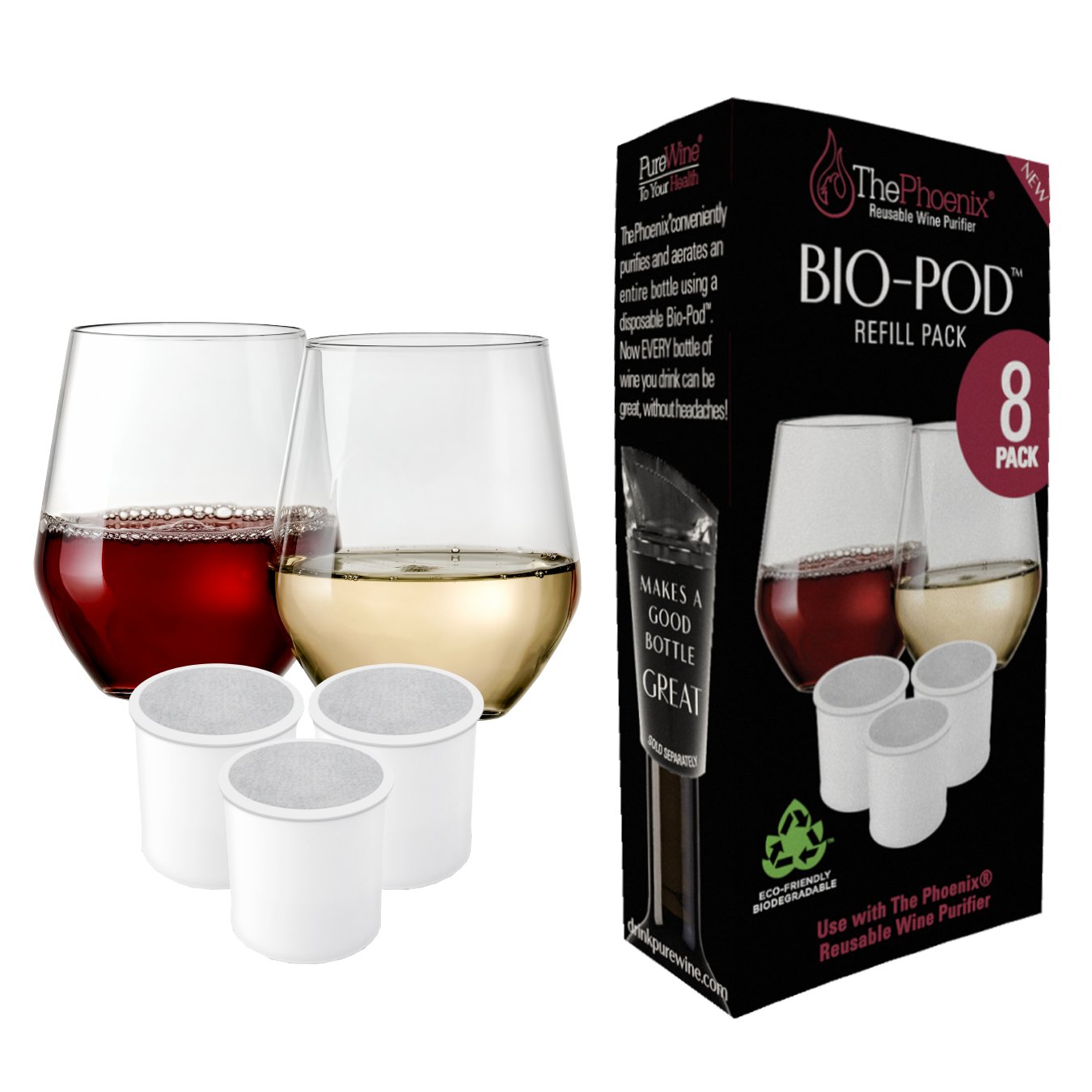
 (20 reviews)
(20 reviews)